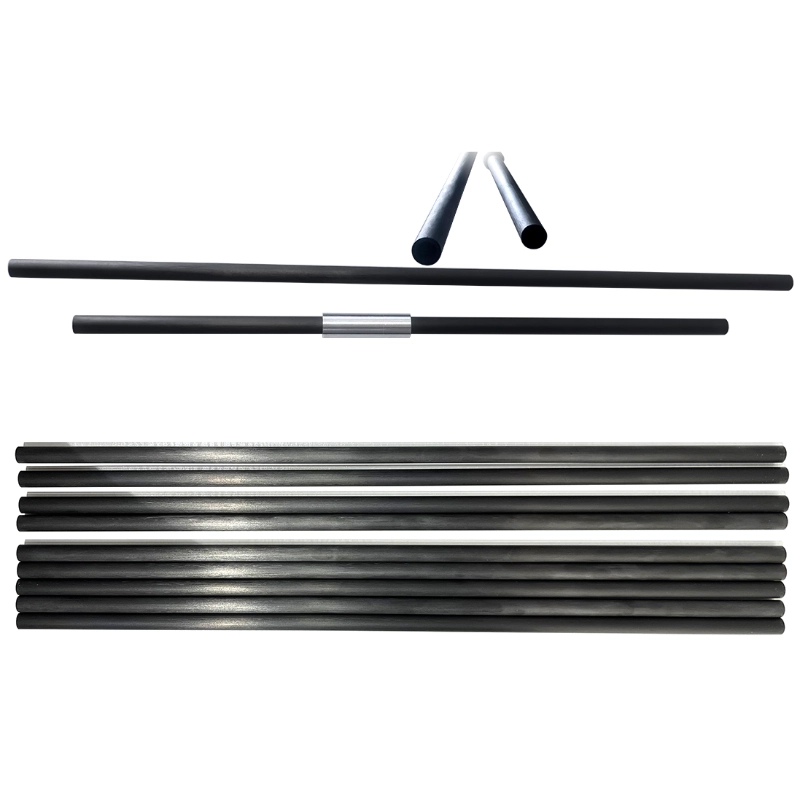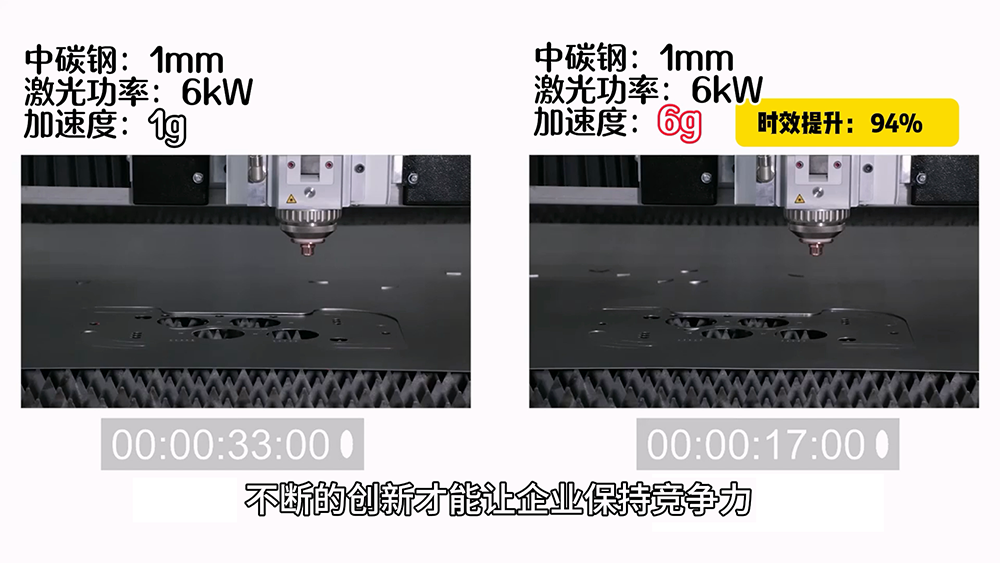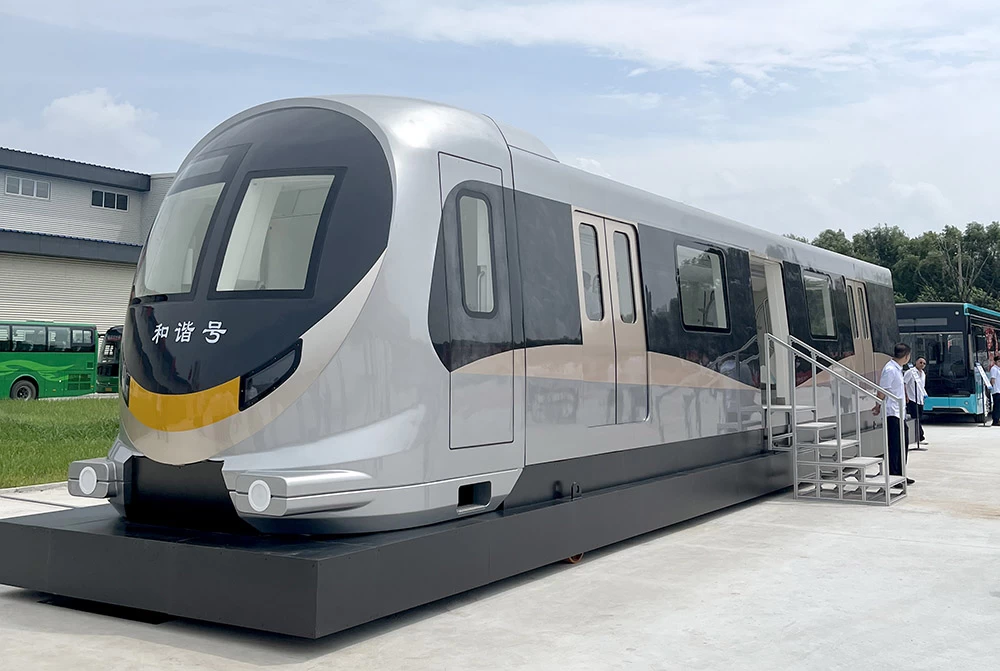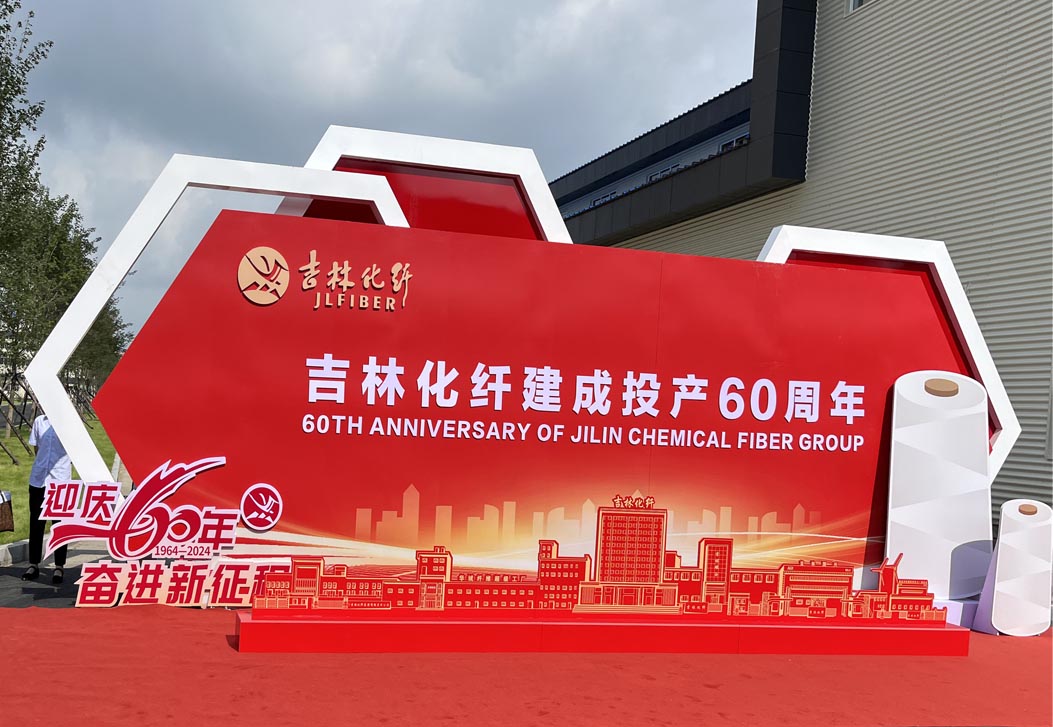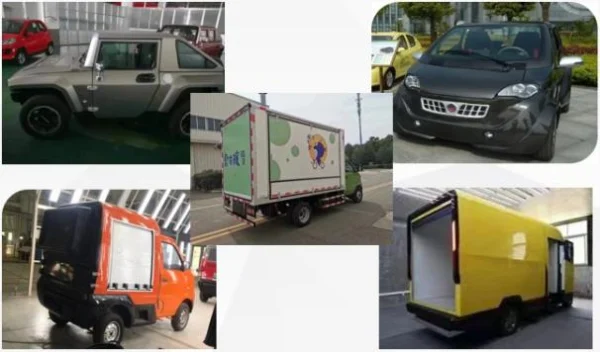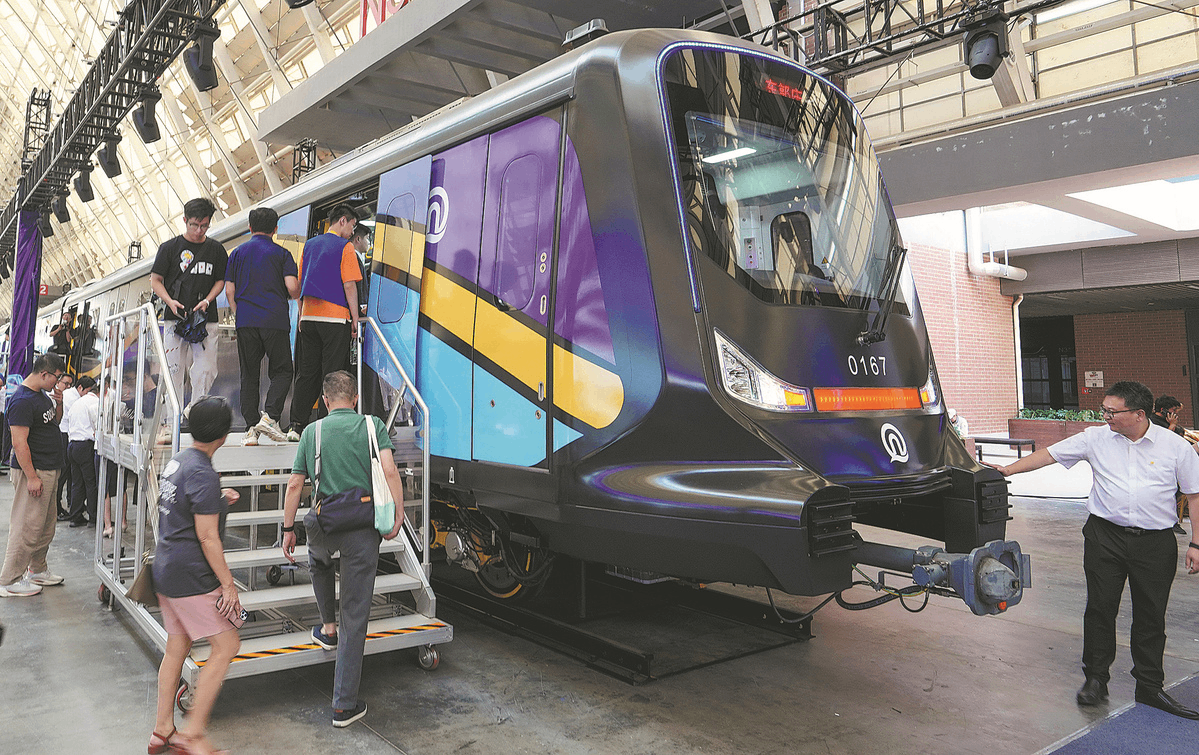
On June 26th, the "CETROVO 1.0 Train," the world's first carbon fiber metro train designed for commercial operation, was officially unveiled in Qingdao, Shandong.
This train is 11% lighter than traditional metro vehicles, boasting significant advantages in being lighter and more energy-efficient, ushering in a brand-new green upgrade for the metro train industry.
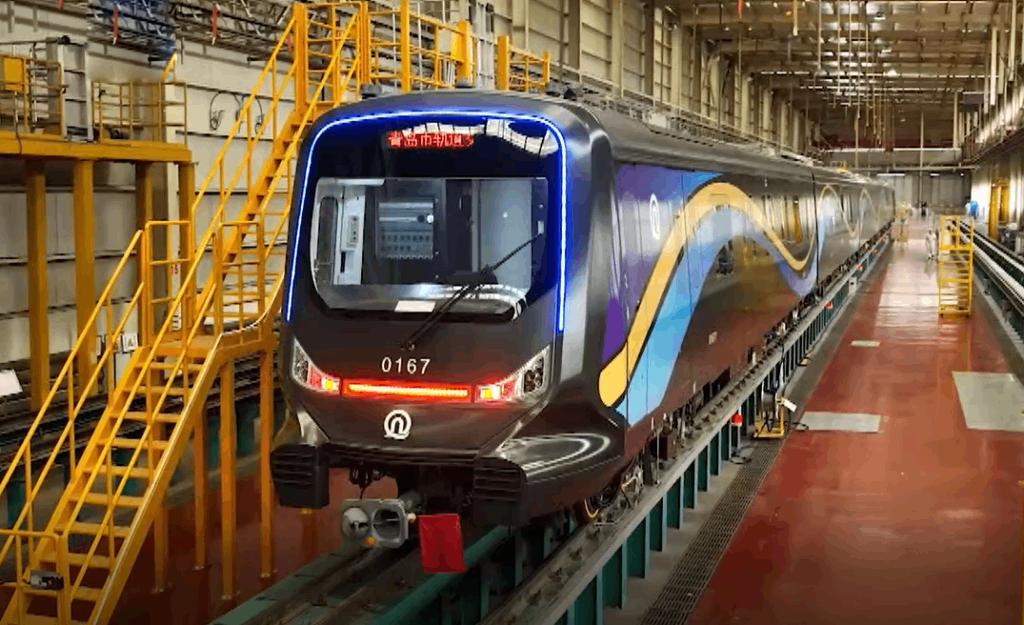
Lighter Body, More Efficient!!
Expected to Enter Service This Year!!
Traditional metro cars mainly use steel and aluminum alloy materials, facing a weight reduction bottleneck due to their material characteristics. Carbon fiber, known as the "king of new materials," has the advantages of being lightweight, high-strength, fatigue-resistant, and corrosion-resistant. Its strength is over 5 times that of steel, but its weight is less than a quarter of steel, making it an excellent material for rail vehicle lightweight design.
The car body, bogie frames, and other major load-bearing structures of this train use carbon fiber composite materials, achieving a new upgrade in vehicle performance, with advantages such as being lighter and more energy-efficient, having higher strength, stronger environmental adaptability, and lower life-cycle maintenance costs.
Compared to traditional metal material metro vehicles, this carbon fiber metro train has a 25% lighter car body, 50% lighter bogie frames, and an overall weight reduction of about 11%. It also reduces energy consumption by 7% during operation, and each train can reduce carbon dioxide emissions by about 130 tons per year, equivalent to afforestation of 16.64 acres.
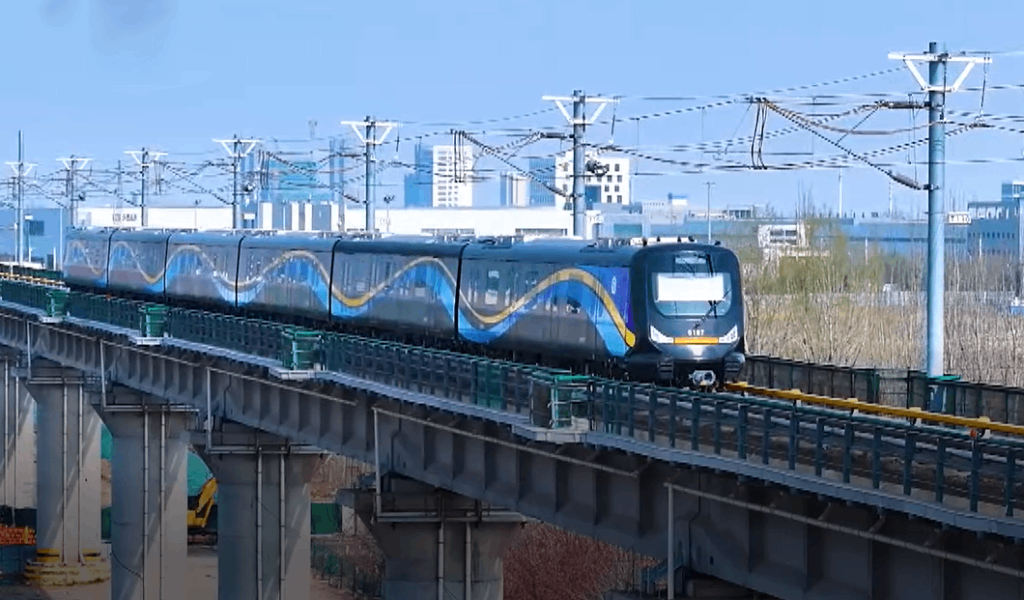
The carbon fiber metro train can reach a top speed of 140 km/h, a significant increase compared to the 90 km/h of traditional metro trains. Currently, this carbon fiber metro train has completed factory type testing. According to the plan, it will be put into passenger demonstration operation on the Qingdao Metro Line 1 within this year.

